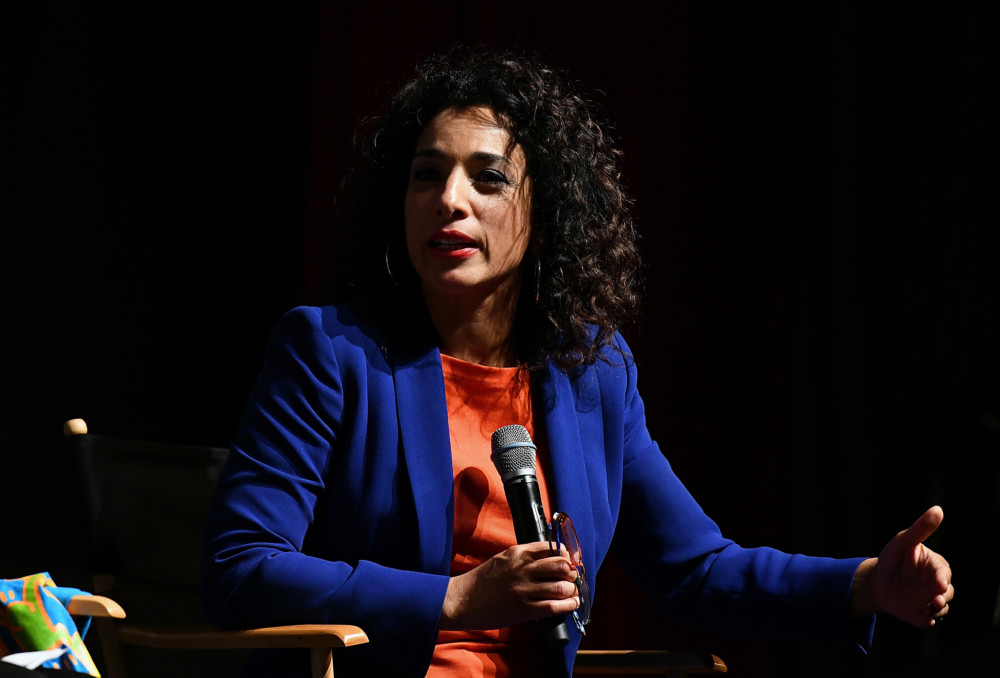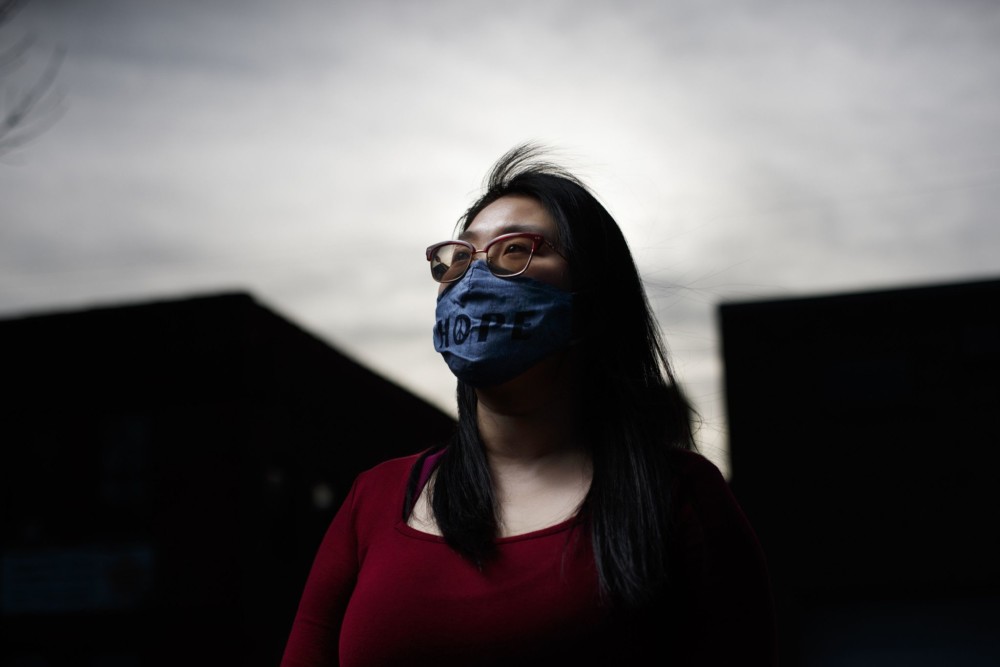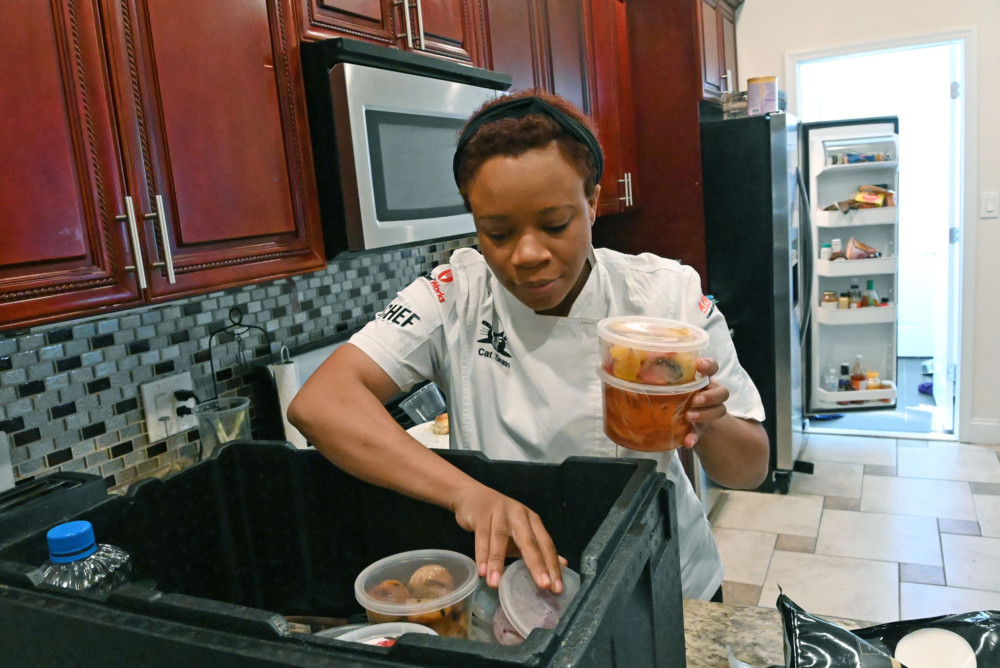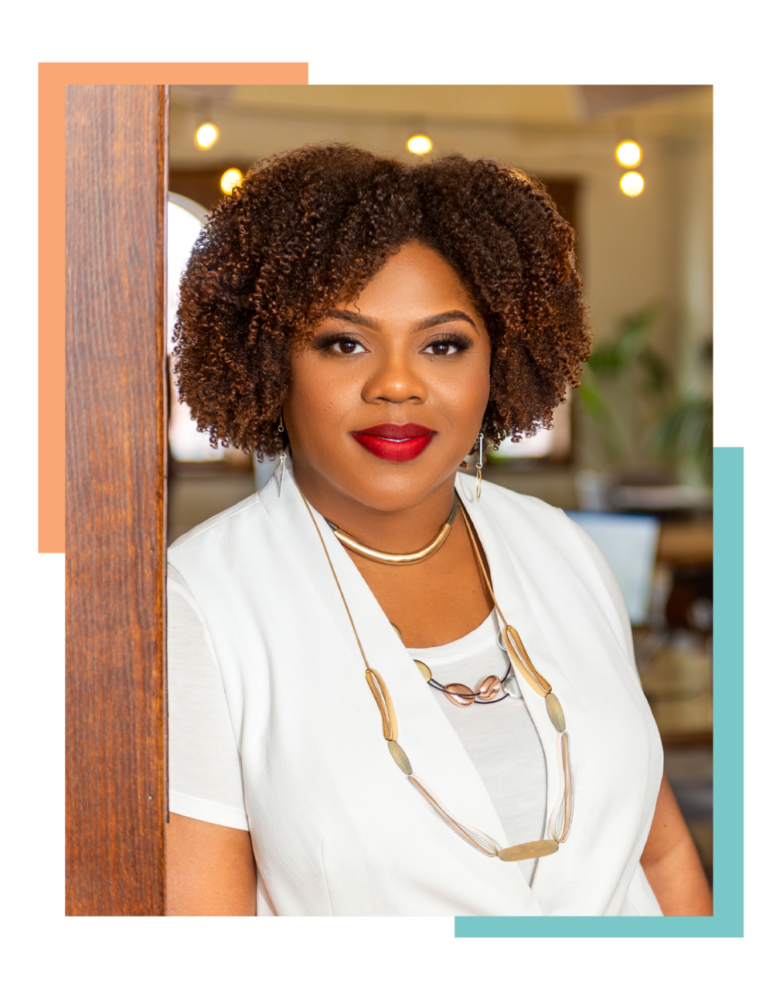By Stephen Battaglio
Los Angeles Times
WWR Article Summary (tl;dr) As Stephen Battaglio reports, longtime CBS News reporter Michelle Miller shares how the “struggle against racism is woven into her family history.”
Los Angeles
CBS News national correspondent Michelle Miller can clearly recall what the publisher of the Minneapolis Star Tribune told her and other Black editorial interns on their first day at the newspaper 32 years ago.
“He said, ‘You’ve got to put your blackness aside, you can’t be a journalist and a Black journalist,” Miller, 52, said during a Zoom call from her home in New Jersey. “I said ‘Has anyone told you to put your whiteness to the side? Or your maleness to the side? I was born a Black woman…. You have to excuse me if I think differently than you. My lens is different. My perspective is different.'”
The publisher was shocked, while Miller’s colleagues of all colors supported her. It was the beginning of a journalism career that always kept an eye on racial inequity and social injustice, from her early days as a reporter for the Los Angeles Times, through her 16 years at CBS News where she is now a co-host of “CBS This Morning Saturday” alongside Jeff Glor and Dana Jacobson.
In the aftermath of George Floyd, the unarmed black man killed May 25 while in the custody of Minneapolis police, voices such as Miller’s have been amplified in TV newsrooms that are covering the protests and a cultural reckoning brought on by the event.
“Reporters and anchors of color are feeling this story in a different way than others, and I think their ability to draw string from their past is a very valuable asset,” said CBS News President Susan Zirinsky. “The ability of reporters like Michelle to share their experiences in a meaningful way really does allow America to see itself.”
Zirinsky said every Black correspondent has experienced racial bias, and in on-air panel discussions in the days following after the Floyd killing they shared examples freely. Pierre Thomas, the justice correspondent for ABC News, told how he recently was wiping down a shopping cart at a supermarket when a white woman motioned to him as if he was cleaning the cart for her. “I simply said to her ‘I’m cleaning this cart for me,’ ” he said. “We suffer these indignities every day, all the time.”
For Miller, the struggle against racism is woven into her family history.
She is the daughter of Dr. Ross Miller, a trauma surgeon who in 1964 wanted to buy a home in Compton but was turned down by a white owner who refused to sell to him because of his race. A white friend made the purchase and quitclaimed the home to Dr. Miller, who channeled his outrage into local activism.
He headed up the school board, where he reformed racially discriminatory practices and the curriculum, and served on the city council in Compton.
As Miller said in an essay she delivered on a recent edition of “CBS This Morning,” her father placed his hopes for the country’s future in Robert F. Kennedy, whose bid for the 1968 Democratic presidential nomination was propelled by a message of social and economic equality that appealed both to Black voters and working class whites.
Those dreams were deferred in the ballroom of the Ambassador Hotel in downtown Los Angeles on June 5, 1968, when gun shots rang out after Kennedy declared victory in the California primary.
Dr. Miller was among the celebrating Kennedy supporters in the room, eager to head to the Democratic nominating convention in Chicago as a delegate. Instead, he tended to the gravely wounded Kennedy, after having to convince security people who did not believe he was a doctor because he was Black, and was the first to tell TV news reporters about the candidate’s condition. Kennedy died the following day, but the other victims of the assassin Sirhan Sirhan who were treated by Dr. Miller that night survived.
Michelle Miller was only 6 months old at the time of the shooting that was part of a tumultuous year filled with social upheaval. She had been living with an aunt in Alabama and that month was taken in by her grandmother in South Central. “As we were flying in, Robert Kennedy was flying out in a casket,” she said.
The relatives of Miller’s father cared for her because he was not married to her mother, a white administrator at the hospital where he worked. The woman kept her pregnancy secret from her own family members who disapproved of her dating a Black man.
Racism forced Miller to grow up without having any relationship with her mother. They spoke for the first time in the early 1990s, when her father was diagnosed with cancer, but rarely after that. Her mother’s relatives have no knowledge of her existence to this day.
“It was until 10 years later after my son was born that I felt this real need for her to acknowledge this whole lineage and when she told me she wouldn’t, that’s when it hurt,” said Miller, the mother of two teenagers.
Miller never discussed the painful aspect of her family background on TV until she was asked by “CBS This Morning” executive producer Diana Miller and senior producer Brian Bingham to reflect on the nation’s response to Floyd’s death in a personal essay. They wanted to tap into the passion that the typically exuberant Miller was bringing to their discussions on the subject in editorial meetings.
“When I’m on a call with them and I have something to say, I lay it out,” Miller said. “They said, ‘You’re so clear from your perspective and we think that perspective needs to be heard.’ They didn’t know anything about my personal story.”
After getting the assignment she pulled out her mobile phone and started dictating her thoughts. “It was like a stream of consciousness,” she said. “Maybe it was on the surface waiting to come out. I’m pretty transparent.”
Marsha Cooke, a former CBS News executive who is now senior vice president of impact for Vice Media Group, said Miller’s unfiltered nature is what makes her compelling as a journalist and a person. “She’s telling you exactly what she thinks and where she stands all the time,” Cooke said.
Miller’s “Reporter’s Notebook” segment embedded the details from her life in Los Angeles, which included the rejection by her mother, being bused to schools in white Los Angeles neighborhoods and her grandmother’s instructions to “steer clear” of police officers, into a sweeping look at the nation’s racial disparities. She cited national flash points, many of which she covered over the years, such as the beating of Rodney King and the shooting of Michael Brown by police in Ferguson, Mo.
Miller concluded that while the massive protests in response to Floyd’s death offer some hope, real change would come only after self-reflection and a sustained effort to end the cycle of racial bias that keeps repeating itself.
“Rooting out racism takes a lifetime commitment,” she said in the piece that aired June 5. ” … Everyone must see in America who she was and who she is in order to decide who she wants to be. We are living with the remnants of her original sin. We must face that and bear witness to the change that won’t allow a next time.”
Miller said her experiences, reporting and conversations on racism throughout her life likely drew her to her husband, Marc Morial, the president of the Urban League, a non-partisan civil rights organization in New York. They first met when he served as mayor of New Orleans and she was a correspondent and anchor for WWL, the leading local TV station in the city. They have been a power couple ever since.
Miller knows the challenges of changing police conduct and the racial bias often attached to it. She watched closely as Morial, the son of New Orleans’ first black mayor, devoted himself to reforming local law enforcement during his two terms in office from 1994 to 2002. He succeeded in cutting the city’s violent crime rate by more than half and reducing the number of complaints against police.
After Miller’s “Reporter’s Notebook” aired, Zirinsky circulated it to the entire division and to some of the top executives at CBS. Colleagues, some stunned by the revelation about her family life , called Miller and told her, “do more of that.”
But Miller has long championed stories on Black history for CBS News, including one on her father’s heroism on the night Robert Kennedy was shot. The details were a bit hazy to her (“The older my father got, the less he told the story,” she said). Then in 2013 a Google search turned up an FBI document that said CBS News offered to drive Dr. Miller back from the Central Receiving Hospital where Kennedy was taken, in return for an on-air interview. It sent her and a producer into the CBS News video archives where they found tape of Dr. Miller talking to correspondent Terry Drinkwater.
“I’d never seen my father that young,” she said. “I never heard his voice that way. I was frozen. I said, ‘we’ve got to do this story.'”
Recently, Miller and CBS Sports host James Brown held a video chat for parent company ViacomCBS employees, where they discussed the need to draw candidly on their experiences to get viewers to truly understand the depth of the nation’s race problems. “Frankness is the only way that we’re going to be able to make progress for each of us, all of us, to be heard at the table together, to talk about those things in order to be able to move forward,” Brown said.
Many major newsrooms, including the Los Angeles Times, are having similar internal conversations, some of them tense, with their journalists.
But Cooke, the first Black woman to serve as Asia bureau chief for CBS News, said it’s a long time coming. She believes Black journalists have focused on achieving greater representation in news organizations, and now getting higher-ups to listen to their experiences is the next obstacle to be scaled. The current crisis is presenting an opportunity.
“Now it’s not only that we’re demanding that these newsrooms be diverse, but our personal experiences must be factored in as well,” Cooke said.
“That’s what’s changing. It’s the most optimistic I’ve been in this industry for a long time.”
___
Distributed by Tribune Content Agency, LLC.

















































































































































































































































































































































































